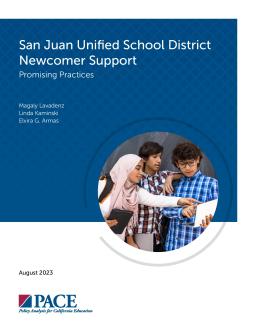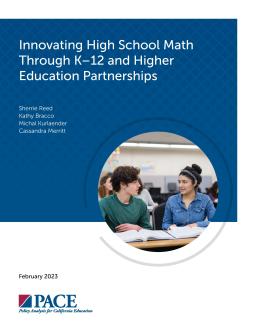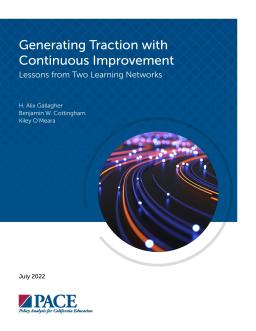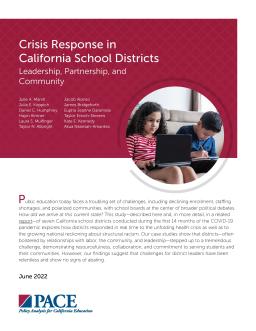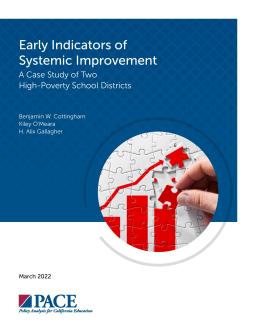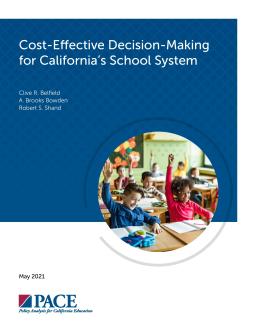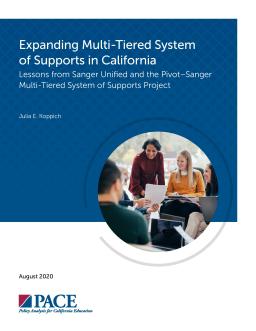Promising Practices
Published
Summary
This case study identifies promising practices for newcomer education implemented in San Juan Unified School District (SJUSD), one of 12 local educational agencies (LEAs) funded under the California Newcomer Education and Well-Being (CalNEW) project between 2018 and 2021. This report was developed through a partnership between PACE and the Center for Equity for English Learners (CEEL) at Loyola Marymount University (LMU).
Published
Summary
Access to and success in advanced math courses are not equal among high school students, with only about half of California seniors enrolling in these courses. To address this, six partnerships between university faculty and high school math specialists developed Advanced Innovative Math (AIM) courses. This report highlights the benefits of these partnerships and their common features of successful intersegmental partnerships, supplemented by case studies of each partnership.
Lessons from Two Learning Networks
Published
Summary
This report examines how continuous improvement is applied to educational accountability in California. It analyzes the experiences of two organizations leading networks to increase postsecondary success, aiming to improve the consistency of initiatives using continuous improvement. Key takeaways for districts, county offices, and support providers are provided.
Leadership, Partnership, and Community
Published
Summary
This study of seven California school districts during the COVID-19 pandemic shows how districts responded in real-time to the crisis and structural racism. Districts showed resourcefulness, collaboration, and commitment to serving students and communities. However, challenges remain, including declining enrollment, staffing shortages, and polarized communities, with school boards at the center of broader political debates.
A Case Study of Two High-Poverty School Districts
Published
Summary
A report examines two CA districts that have shifted their structures, policies, and culture to improve student outcomes. Both districts worked with California Education Partners to refine their continuous improvement approach and spread practices. PACE identified three key lessons for leading impactful improvement efforts: anchor work in outcome measures, invest in an aligned system of instructional learning, and use cross-role and cross-site structures. These lessons contributed to positive trends for student achievement, empowered practitioners, and built internal capacity for improvement.
Published
Summary
A report on the importance of economic analysis in decision-making in CA's school system. Economic evaluations can help identify the most effective policies and interventions while reducing waste and ultimately improving outcomes for students. Studied here is the cost-effectiveness analysis (CEA) method, its benefits, and its broad applicability. To be more influential, economic analysts should focus on policies and programs that require significant funding, investigate how results are relevant to decision-makers, and consider how resources can be allocated towards cost-effective programs.
Sanger Unified and the Pivot–Sanger Multi-Tiered System of Supports Project
Published
Summary
Equity has been a key focus of California education policies, which aim to reduce disparities in learning outcomes. The Multi-Tiered System of Supports (MTSS) can help identify struggling students and offer support. Pivot Learning's demonstration project with Sanger, Monterey Peninsula, and Lancaster school districts sought to make MTSS implementation more accessible. Lessons learned from Sanger's implementation can guide the state's continued expansion of MTSS.
